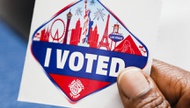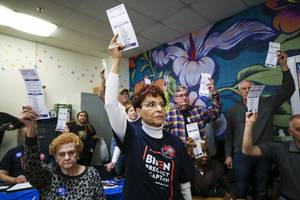Changes to Nevada’s Live Entertainment Tax made headlines after expanding to include outdoor events like Electric Daisy Carnival and Burning Man. But another formerly exempt group has slipped under the radar: escorts.
Under Senate Bill 266, escort services will now be charged a 9 percent tax on the cost to customers for their time. The inclusion has caused some to raise eyebrows, particularly considering that brothels—which have long lobbied to be taxed by the state—remain exempt. While the difference between brothels and escort services might seem like a formality to many, the bill is explicit that the latter does not involve sexual conduct. So why tax one and not the other? Sex-worker rights advocates say lawmakers are still squeamish about legitimizing brothels through taxation.
“Brothels were asking to be taxed, because it’s viewed as a seal of approval by the state government,” says Susan Lopez, founding member of the Las Vegas Sex Workers Outreach Project and co-founder of the Desiree Alliance, a national network advocating for sex workers’ rights. “It frames them as a legitimate business, and I think that’s why there’s still hesitation.”
Nevada Assembly Minority Leader Marilyn Kirkpatrick, who co-sponsored the bill, says including escort services and not brothels was a practical decision, not a moral one. Blanket definitions of “escorts” and “escort services” were included to close loopholes among similar forms of adult entertainment, such as traditional escorts, outcall entertainment (“direct to your room” dancers) and atmosphere models. “It was a matter of bringing clarity,” Kirkpatrick says of the changes, which are intended to be revenue-neutral. “For instance, what would stop a casino from having an event outside instead of indoors if it could avoid the tax? Similarly, why would a strip club be taxed and not outcall entertainment? We changed the language to make it consistent.”
She adds that without an umbrella industry, brothels didn’t fit into any of the loopholes that needed closing. The business model is simply too unique. “Nobody was ever intended to get left out. At some point they may fall into that category, but right now it’s too different.”








